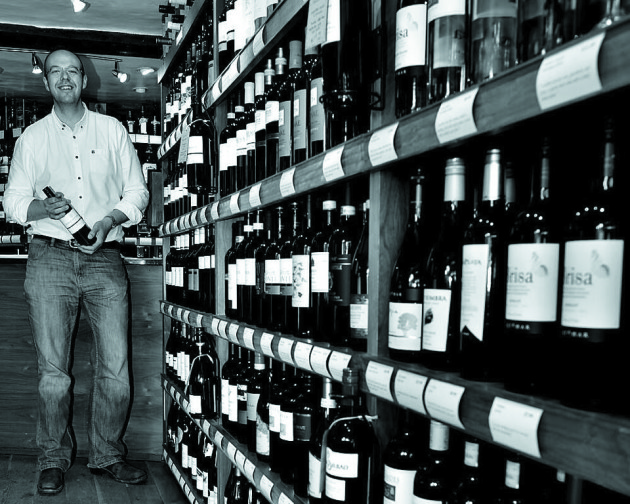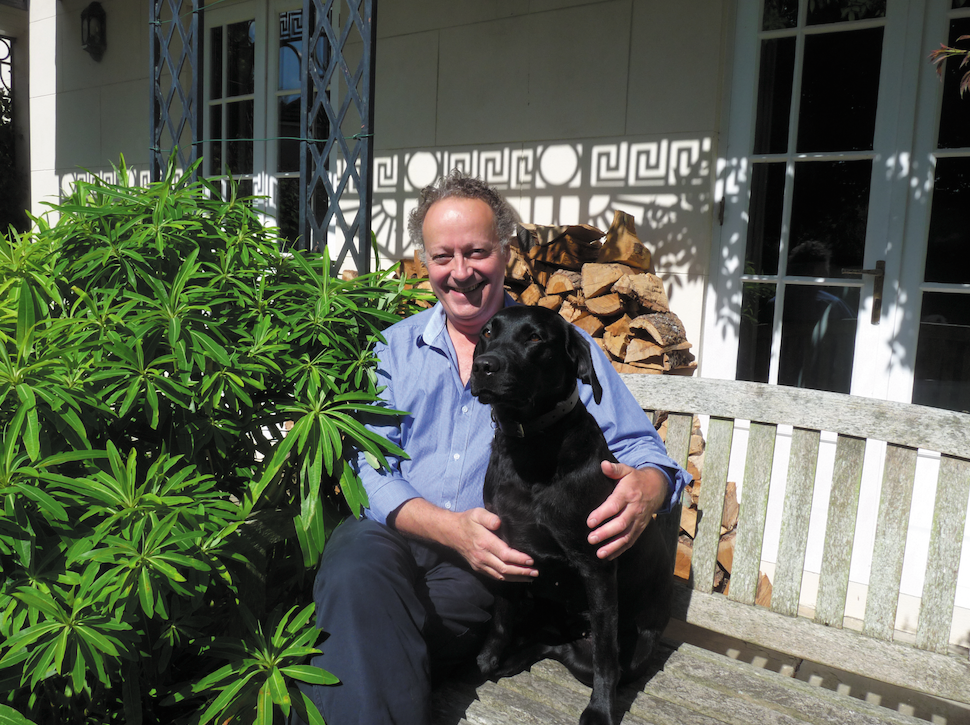
Indie buyers talk trade ahead of SITT
Ahead of our SITT Autumn tastings, Andrew Catchpole invites independent buyers and smaller suppliers to give their views on the benefits and drawbacks of dealing with such specialist importers
Simon Evans, managing director, Naked Grape
Does it make sense business-wise for independents to have a mix of main suppliers for more mainstream wines and spirits, and then cherry-pick the rest? How do you decide upon the best balance?
It depends on what wines you want to put on your shelves. Personally we ignore all the big importers as they mainly handle wines you can find everywhere. If you work with small importers and suppliers you are much more likely to have something on the shelf that customers haven’t seen before and therefore you can offer a reason for people to shop with you. If you stick with comfortable familiar names, the reason for a wine buyer to seek you out diminishes.
Independents will also benefit from the much smaller minimum order quantities that small importers/suppliers have, which makes clear business sense.
I deal with three “large” importers (and these are quite low key in themselves), the rest of the range comes from small suppliers.
What are the drawbacks of dealing with smaller and specialist importers?
Stock availability, but this is marginal. They are more expensive obviously, but the lower minimum-order quantity allows for much improved cash-flow control.
There is no difference in delivery times or accounts people. They offer a tight credit system just like the big companies, which normally require direct debits to be set up.
And what benefits can they offer over rivals?
It’s all about their products and about you. You have to be interested in selling wines that are more interesting than the brand stuff. If not, just stick with the big importers and sell these wines parrot fashion for ever more!
Also they have more interesting wines that you can really get interested in and that customers can’t find everywhere. And you see the owners more often so you get a much more personal relationship, and you can build sales and ideas together.
Gavin Smith, purchasing manager, The Vintner
Does it make sense business-wise for independents to have a mix of main suppliers for more mainstream wines and spirits, and then cherry-pick the rest? How do you decide upon the best balance?
For all our mainstream wines we buy ex-cellar to maintain best pricing as well as good relationships with the winery, making sure they understand our business as much as possible and we understand their expectations. The benefit of specialist suppliers is an introduction into the lesser-known territories where we can take chances without too much financial risk. The best balance is understanding what percentage of your customers’ wines will be lesser-known versus more mainstream varieties and try and balance it out. As our list evolves fairly regularly we are able to judge it quite well and be reactive.
What are the drawbacks of dealing with smaller and specialist importers?
I find the small specialist importers much easier to deal with. They tend to be very reactive and keen to help listings work. We mainly ship ex-cellar so retaining best pricing isn’t a problem and when it is a one-off purchase from UK stock they are often accommodating based on our overall relationship and sales.
And what benefits can they offer over rivals?
Unique products from small boutique producers. One can source interesting more esoteric wines to make a list more varied without investing in large volumes of stock.

Photo: Gavin Smith, purchasing manager, The Vintner
Marcel Moreno, sales director, Moreno Wines
How would you define a “specialist” importer and what USPs should a specialist offer?
To me a specialist is someone with in-depth knowledge of, and historical relationships with wines from a particular region. We now have wines from all over the world, but our heart is always in Spain. Hopefully 49 years has given us some great long-term relationships with suppliers, which can mean keen pricing, or access to rare and unusual wines.
What can specialist importers/suppliers offer that more mainstream and bigger players cannot?
We can be ahead of the trend on emerging styles and varieties. Often, with an obscure wine like Txakoli, there aren’t that many great ones and the best may be with smaller more specialist agencies. By the time the big guys cotton on, they might be left with something, shall we say, less remarkable.
On a more mainstream style, like Rioja, we can offer a depth of knowledge many can’t. Rioja’s in an interesting place at the moment, as it’s slightly redefining itself.
Hopefully showing wines we are passionate about [and] building sales up from a zero UK presence pays back. But if not and the big guys take an agency from you, as a specialist with history and relationships in the region, we can find a new agency of equal quality much easier than a larger, more vanilla company.
I think we offer better service than the big guys and we are definitely more flexible. It’s about individual relationships. Our sales team are a fantastic bunch of intelligent, independently minded guys who love wine and are happy to help balance a list and spend a lot of time on things like staff training.
What of prices and support – how do you as a company compete with big players offering discounts and with bigger sale teams?
I think we win on the price/quality issue. We can offer very competitive pricing, I’m sure our fixed costs are a little steeper but I’m also sure our rent’s cheaper, and we don’t take money out of the business for shareholders’ dividends. We have wines on our list at £3.66 DPD, and they are good wines. I get listings when I put one of my wines against a larger company’s at the same price point, and just ask for them to be tasted equally and to pick the best wine. It works for me three times out of four.
There’s only one area we find it difficult to compete on, and that’s “buying business”. We don’t offer money upfront for listings, I’m not sure it’s fair or ethical, although we are not against retro discounts for hitting volumes. And we don’t pay third-party consultants at all. It’s not ethical.
Simon Taylor, owner, Stone, Vine & Sun
How would you define a “specialist” importer and what USPs should a specialist offer?
Good question. Small producers, small-volume wines and various specialist areas (with us it’s Languedoc-Roussillon, regional France generally, South Africa and Chile).
What can specialist importers/suppliers offer that more mainstream and bigger players cannot?
It’s all about service. With us you speak to not just a salesperson but someone who is as much involved in buying as selling, has travelled and met the winemaker. That really helps when it comes to staff training.
We also don’t just dip in and out: we are prepared to fine-tune a list for a decent period of time, monitoring what works and what doesn’t, proposing new arrivals, etc. Likewise when you phone an order in you will speak to someone who knows the wines, knows the current vintage and knows what’s in stock.
What of prices and support – how do you as a company compete with big players offering discounts and with bigger sale teams?
If it’s just about price and the lowest common denominator then we are not interested. Secondly, we don’t give huge discounts but prefer honest, transparent pricing. Some of the big boys play stupid games – pricing stuff right up in order to give big discounts. We can’t be bothered. We also don’t sign you into term contracts.
Are customers becoming more adventurous in their purchasing, or at least more willing to be steered to more off-piste wines?
There are two things going on here. Yes people are unquestionably prepared to be more adventurous by themselves (and sometimes adventurous doesn’t mean the latest over-priced, over-designed trend from the New World, but returning to out-of-fashion but good-value wines like Soave and Muscadet). But the customer also needs to be helped to be adventurous with advice – i.e. “this is the best oaked Chardonnay we have from the New World – half the price of Meursault” and we can supply those cues.

Photo: Simon Taylor, owner, Stone, Vine & Sun
Andrea Briccarello, head sommelier and buyer, Galvin La Chapelle
Does it make sense business-wise for independents to have a mix of main suppliers for more mainstream wines and spirits, and then cherry-pick the rest? How do you decide upon the best balance?
We use main suppliers, big boys and smaller suppliers – it’s like shopping with Tesco and then your local store. The big boys guarantee fast, reliable service and the smaller suppliers make the difference with the wine list. People go to restaurants or shops wanting a surprise element and a feeling of exclusivity, which is very important.
What are the benefits of dealing with smaller and specialist importers?
The service is usually very reliable from all, but smaller suppliers are often even more passionate about what they do, often being companies set up by one or two people who search for more individual wines – looking more at the craft than the price. So it’s extremely important to have a good balance of suppliers.
The better suppliers understand a little more the necessities of the restaurant and wine list, they come to you with ideas, something new, and they get excited about it, so smaller makes it different and more exciting.
It’s just a different approach, bigger companies can give bigger discounts, support for starting a business, but if you are looking for an edge, quirkier and smaller suppliers can guarantee that.
SITT Autumn – Bristol and London
SITT – the Specialist Importers Trade Tasting – comprises two one-day events run for independent buyers from both the on and off-trades, bringing them together with specialist importers under one roof, for tasting and business-focused workshops and masterclasses. Here’s a taster of what is in store this autumn.
Bristol Museum & Art Gallery,
Bristol BS8 1RL
Masterclasses
How to bring new trends to the
West Country
Time: 11am–11.30am
Host: Angela Mount
Beyond Tokaj: Why we’ll all be drinking Hungarian wines this year
Time: 12.30pm–12.55pm
Host: Peter McCombie MW
Known unknowns: Unearthing the wines of Lebanon
Time: 1.45pm–2.15pm
Host: Peter McCombie MW
#generationwine
Time: 3pm–3.30pm
Host: Christopher Cooper
The Lindley Hall, London SW1P 2QW
Masterclasses
Exhibitor breakfast briefing
Time: 9.40am–10.10am
Host: Andrew Catchpole
Chenin Blanc from the Loire
Time: 11am–11.30am
Host: Laure Patry
#generationwine
Time: 12.45pm–1.15pm
Host: Christopher Cooper
SITT Spotlight on Bordeaux/Bordeaux Supérieur: Great wines at affordable prices
Time: 3pm–3.30pm
Host: Raul Diaz
Beyond Tokaj: Why we’ll all be drinking Hungarian wines this year
Time: 4pm–4.25pm
Host: Peter McCombie MW
Known unknowns: Unearthing the
wines of Lebanon
Time: 4.40pm–5.05pm
Host: Peter McCombie MW
For more information and to register please visit sittastings.com





